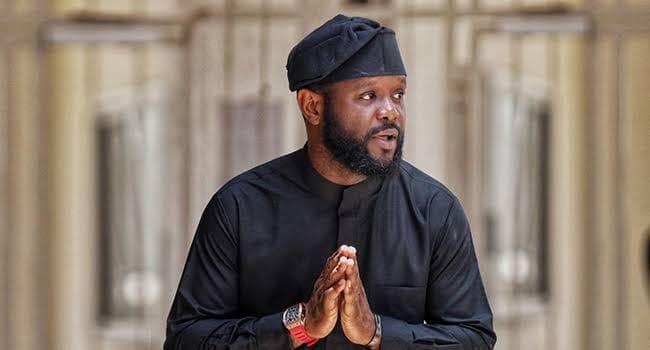In the world of African business dynasties, the weight of legacy can be both a crown and a crucible. For Seyi Tinubu, son of Nigeria’s President Bola Ahmed Tinubu, that legacy is unmistakable, deep-rooted in politics, wealth, and power.
But where others might have leaned into inherited authority, Seyi has chosen instead to sculpt his own relevance, not with noise, but with vision. What he is building is not simply a brand, but a blueprint: one where influence is wielded with strategy, digital fluency, and measured resolve.
ALSO READ: Sarah Diouf: Designing Diaspora, Defining a New Era of African Elegance
There is a refined quietness to the way Seyi Tinubu navigates Nigeria’s fast-paced economic and political ecosystem. He does not seek the spotlight, yet somehow, he always ends up exactly where the future is being negotiated.
As the founder of Loatsad Promomedia, a leading out-of-home advertising agency in Nigeria, Seyi has proven that his grasp of power extends beyond political corridors into the realm of business disruption and innovation. He has reimagined billboards, not as static installations, but as dynamic canvases for engagement, information, and culture.
Under his leadership, Loatsad has transitioned into a powerhouse of digital outdoor advertising, fusing technology with influence in ways that quietly dominate urban skylines. Lagos, Nigeria’s humming capital, is now dotted with his digital imprints, modern-day totems of narrative and reach.
Yet what is most compelling is not just what Seyi builds, but how. His choices reflect a distinct understanding of Nigeria’s media psychology: that visibility, when used artfully, is power.
But beyond entrepreneurship, Seyi Tinubu’s most significant currency is social capital, one he spends thoughtfully. He does not fit the archetype of the flamboyant elite. His charisma is understated, his style subdued but precise, and his public moves are measured, often grounded in strategic philanthropy and youth empowerment.
As a patron of numerous youth initiatives, and through his Noella Foundation, he is quietly investing in education, talent development, and mental health awareness. He understands that influence today is not inherited, it is curated.
ALSO READ: Bertina Engelbrecht: The Steady Force Redefining Corporate Leadership in South Africa
Yet to speak of Seyi Tinubu without addressing the complexities of his name would be disingenuous. In Nigeria, where dynastic wealth is often met with skepticism, the name “Tinubu” carries both gravity and controversy. But Seyi has never denied this inheritance.
Instead, he has re-contextualized it, using it not as a shield, but as a lever. His leadership style is not performative; it is generational. He does not pretend to be an outsider. He simply insists on being more than his bloodline.
This nuance, this delicate balance between privilege and earned accomplishment is where Seyi’s narrative finds its weight. He is not the rebel billionaire. He is the architect of silent influence: a digital-age entrepreneur who understands the calculus of optics, the subtle choreography of legacy, and the fine line between access and agency. In a Nigeria where noise often masks vision, his strength lies in clarity.
What he is ultimately offering is a new template of elite African leadership, one that leans into strategy, legacy, and cultural currency, but tempers it all with discretion. Seyi Tinubu is not trying to prove he can make noise. He is demonstrating he can make structure. And in the unfolding story of modern Nigeria, that may be the loudest statement of all.

